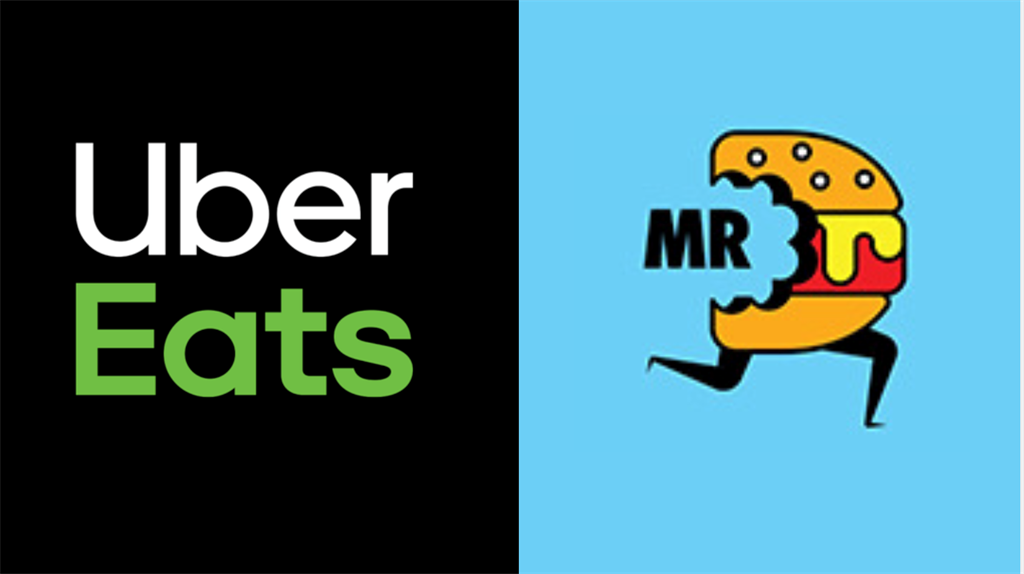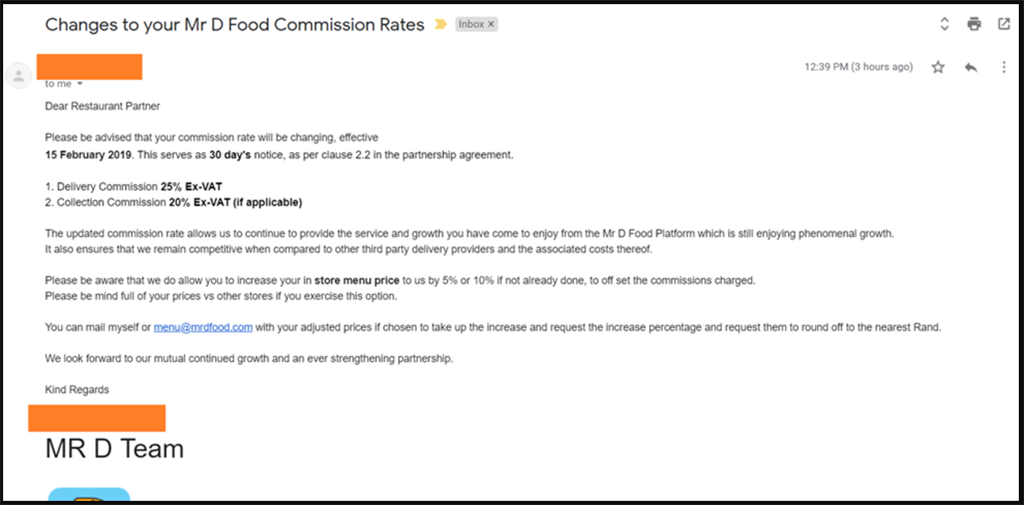Uber Eats and Mr D Food charge restaurants up to 30% commission – but ask them not to charge more
Original article: https://www.businessinsider.co.za/business/uber-eats-and-mr-d-food-charge-restaurants-up-to-30-commission-2019-1
- Uber Eats and Mr D Food ask outlets up to 30% commission on each meal ordered via their platforms.
- Uber Eats says the delivery fee, which differs from location to location, is required to cover operational costs.
- Both Uber Eats and Mr D Food encourage outlets to keep prices in line with in-store menu prices, which means the restaurant takes the hit.
Uber Eats and Mr D Food ask outlets up to 30% commission on each meal ordered on their platforms to cover operational costs – even as they ask those restaurants to charge the same as they would in-store.
After the publication of a Business Insider South Africa comparison detailing how Uber Eats and Mr D Food prices differ up to 29% to in-store menu prices – excluding the delivery fees consumers pay directly – several food outlets reached out to highlight the fee the delivery services ask.
Read: Food is up to 29% more expensive on Uber Eats and Mr D than in-store – and that’s before delivery fees
Spur spokesperson Moshe Apleni said all its delivery prices are 10% more than in its restaurants, but that is to account for the 20% to 25% service fee Spur pays the third-party delivery companies.
Restaurants set their own prices on the two delivery platforms.
Uber Eats said restaurants’ service fees are negotiated on a case-by-case basis, and varies by location. It did not disclose what percentage service fees it can charge.
Mr D Food did not respond to a request for comment.
Uber Eats Sub-Saharan Africa spokesperson Samantha Fuller said Uber operates a three-sided marketplace: the restaurant, the consumer, and the delivery partner that comes to the door – and each entry into the market is charged a service fee.
“Delivery and Service Fees vary by market, and cover operational costs such as paying the delivery-partners fare, credit card fees, support and much more,” Fuller told Business Insider South Africa.
Fuller said Uber Eats help partners to get their business ready for delivery and provide continuous feedback to ensure they are maximising their operations on the application.
While restaurants have the discretion to decide how much they charge for their food, they are encouraged to use the same pricing on Uber Eats as their menu, she said.
“With price a huge factor in any purchasing decision, it’s in the restaurants best interest to charge as low a price as possible to incentivise consumers to make orders.”



Recent Comments